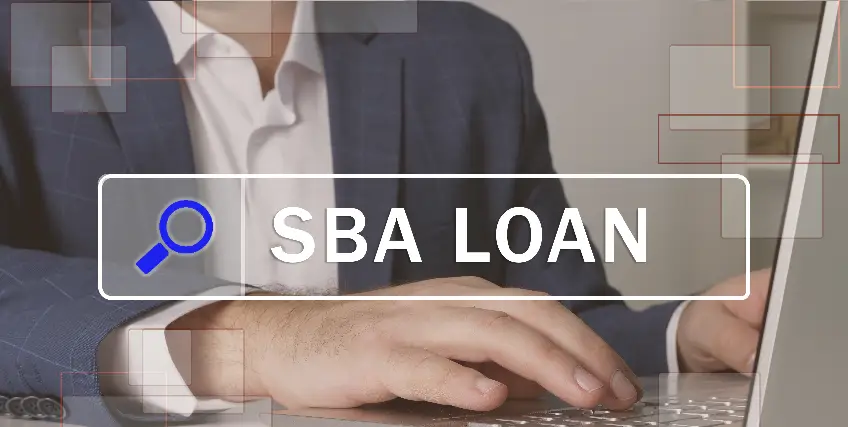Looking for Business Financing?
Apply now for flexible business financing. Biz2Credit offers term loans, revenue-based financing, lines of credit, and commercial real estate loans to qualified businesses.
Set up a Biz2Credit account and apply for business financing.
Key Takeaways:
How SBA loan funding helps small businesses access affordable, government-backed financing.
Understand the key SBA loan eligibility criteria including credit history, business size, and ownership requirements.
Discover practical steps to strengthen your SBA loan qualifications and prepare a successful application.
Small businesses are the backbone of the U.S. economy. According to the U.S. Small Business Administration, there are more than 36 million small businesses in the United States.
Yet, access to affordable business loan options remains one of the biggest challenges small business owners face. Traditional lenders often have strict credit standards, require significant collateral, and may take weeks to approve applications. That's where SBA loan funding serves as a reliable option for entrepreneurs seeking flexible and low-interest financing backed by the federal government.
Unlike traditional loans, SBA-backed loans are partially guaranteed by the Small Business Administration, which encourages private lenders to extend credit to small businesses that might not otherwise qualify.
In this article, learn about the key SBA loan criteria, including credit score, equity injection, business size standards, and citizenship requirements; that businesses must fulfil to qualify for SBA loan funding.
Understanding SBA Loan Funding
SBA loan funding is designed to make financing more accessible for small businesses. These loans are backed by the federal government but not issued directly by the federal government. Private lenders such as banks, credit unions, and community development institutions offer these loans while the Small Business Administration (SBA) guarantees a portion of the loan. This helps both sides by reducing the lender's risk and making funding affordable for small businesses.
There are several loan types under the SBA umbrella, each with a different focus. Here are some of them:
SBA 7(a) Loan Program is one of the most commonly used options. It supports various business purposes, such as managing working capital, purchasing real estate, upgrading equipment, or funding business expansions.
SBA 504 Loan Program is usually used for long-term investments like financing major assets like land, buildings, or machinery.
SBA Microloan Program is designed for smaller or newer businesses. Small businesses usually prefer this program for capital needs like daily operations, equipment, or inventory needs.
SBA Disaster Loans are meant to assist business owners who have suffered losses due to natural disasters or emergencies. They can be used for physical repairs or to overcome temporary economic injury.
SBA Express Loan Application are for those businesses who look for speed and convenience. This program offers a streamlined review process through participating lenders, with faster responses compared to standard applications.
All SBA loan types give business owners a wide range of financing options to address various specific needs, whether it's supporting stability, funding business growth, or rebuilding after unexpected challenges.
SBA Loan Eligibility Checklist: Are You Ready?
Applying for SBA loan funding is not just about filling out paperwork, it's about proving that your business meets the agency's loan criteria. The SBA wants to ensure funds are used responsibly and reach legitimate businesses that can repay their debt.
Below is a checklist to help you evaluate your readiness:
Business Size Standards
Business Type and Purpose
Operate for profit within the United States or its territories.
Engage in lawful activities.
Demonstrate a need for financing.
Invest reasonable equity before applying.
Commercial real estate financing or equipment financing.
Refinancing for existing debt under better terms.
Loans to support working capital or business expansions.
Credit and Financial History
Personal credit history: A consistent record of timely payments and responsible borrowing helps demonstrate reliability.
Business credit profile: Established businesses are expected to show positive payment performance with vendors, suppliers, and financial partners.
Cash flow strength: Lenders evaluate whether your business generates enough income to manage operating expenses and loan repayments comfortably.
Equity Injection and Collateral
Business property, machinery, or equipment
Inventory or accounts receivable
Personal assets of the owner
Citizenship and Ownership Requirements
S. citizens, or
Lawful permanent residents with valid documentation.
Business Experience and Management Readiness
The SBA has set standards that define what qualifies as a "small business". Businesses must meet these standards to apply for SBA-backed loans. These standards vary by industry and are based on annual revenue or the number of employees. You can find detailed size standards in the SBA Size Standards Table.
Assessing your business size is an important eligibility criteria because if it exceeds these limits, it may not qualify for SBA loan funding.
However, the SBA regularly updates its standards to reflect inflation and industry changes. You can review them on the official SBA website before applying for the loan.
SBA loan funding has a strict criteria for the type and purpose of the business.
To be eligible, your business must:
Businesses that are speculative, nonprofit, or engaged in illegal activities are generally ineligible. For example, gambling businesses are usually not considered for SBA loans.
Detailed eligibility guidelines are available on the SBA website.
Businesses must also demonstrate their purpose to obtain the funding. Common purposes include:
Using the funds for passive investment or personal use disqualifies applicants.
When applying for SBA loan funding, your creditworthiness plays an important role in determining eligibility. Both the lender and the U.S. Small Business Administration review your financial background to assess repayment ability and overall stability.
They typically consider several factors:
If your credit profile still needs improvement, steps such as reducing outstanding debt, paying bills promptly, and maintaining organized financial records can make a difference.
For newer or smaller businesses, the SBA Microloan Program or the SBA Express Loan Application may provide flexible pathways to funding while you continue building your financial track record.
Equity injection refers to the capital that a business owner invests in their own company when seeking SBA loan funding. This contribution demonstrates commitment and confidence in the business's success. This is one of the key eligibility criteria for SBA loan funding because lenders usually prefer businesses where owners have a meaningful financial stake in the company operations.
While SBA-backed loans don't always require complete collateral coverage, lenders generally look to secure available business assets or property to reduce risk. Collateral can be in many forms depending on the loan structure, such as:
Guidance related to these requirements is outlined in the SBA's Standard Operating Procedures.
A thoughtful equity contribution, supported by well-documented assets, helps instill lender confidence and may strengthen your overall SBA loan qualifications.
All borrowers applying for SBA loan funding must meet certain citizenship or residency standards.
Eligible applicants include:
Owners who hold a significant share of the business are generally required to provide a personal guarantee when applying for SBA loan funding. This ensures that those with a major stake in the business also share responsibility for its financial commitments. The approach reflects the SBA's broader philosophy of encouraging accountability and fostering sound borrowing practices.
Lenders don't just look at financial numbers, they also evaluate your leadership.
Experience in business management, industry knowledge, and a well-prepared business plan can significantly improve your SBA loan eligibility.
If your business is a startup, you may be required to show:
A clear business plan with 2—3 years of projections.
Prior professional experience in your field.
Letters of reference or mentorship records.
If you lack direct experience, the SBA Express Loan Application might be an easier route, as it allows lenders more discretion and faster processing.
Documents Checklist Before Applying
Getting your documents ready before applying for SBA loan funding helps avoid delays. Here's what most sba lenders require:
SBA Form 1919: Borrower Information Form
SBA Form 413: Personal Financial Statement
Business and personal tax returns
Business financial statements: profit and loss, balance sheet, cash flow
Ownership documents: licenses, registrations, or incorporation papers
Business plan and projected repayment schedule
Collateral documents, if applicable
Having these documents ready can also speed up your SBA Express Loan Application process.
Common Reasons for SBA Loan Rejection
Even with careful preparation, not every SBA loan funding application receives approval the first time. The process involves detailed reviews, and sometimes small gaps in documentation or eligibility can make a difference. A denial doesn't necessarily mean your business isn't qualified, it often highlights areas that can be improved before reapplying.
Here are some of the most common reasons applications get declined:
Limited credit history or insufficient repayment capacity
Unclear purpose or use of funds
Missing or incomplete paperwork
Insufficient owner equity or investment
Business not meeting current SBA size standards
Before submitting another application, take time to revisit your SBA loan criteria and identify where adjustments can be made. Many lenders also share feedback when an application isn't approved, so treat it as a constructive opportunity to strengthen your financial profile and overall funding readiness.
Tips to Strengthen Your SBA Loan Funding Readiness
Improving your readiness for SBA loan funding often comes down to preparation and consistency. Even if you meet most of the SBA loan criteria, taking a few extra steps can help you present a stronger application and build greater confidence with your chosen lender.
Here are a few practical ways to get started:
Build your credit profile. Pay bills on time and reduce revolving debt.
Prepare detailed financial projections. Demonstrate how the funds will be used and repaid.
Increase your own investment capital. It shows financial commitment.
Compare multiple SBA-approved lenders. Each lender may have slightly different requirements or interest rates.
Work with a mentor or local SBA resource partner. They can review your plan before you apply.
Conclusion
Preparing for SBA loan funding is a process that helps businesses not just with financing but also helps them understand their business's financial health. The SBA loan eligibility criteria prepares businesses for long-term growth. The process encourages owners to organize their financials, strengthen their management plans, and build confidence with lenders before taking on new commitments.
FAQs About SBA Loan Funding
1. What is SBA loan funding and how does it work?
2. What are the basic SBA loan qualifications?
To qualify, a business must operate legally in the U.S., meet size standards, demonstrate repayment ability, and have owners with reasonable credit and equity invested.
3. Can startups apply for SBA loans?
Startups can use programs like SBA Microloans or the SBA Express Loan Application, which are designed for smaller amounts and faster approvals.
4. What documents are required for SBA loan eligibility
Applicants typically need tax returns, financial statements, ownership proof, personal financial disclosures, and a business plan showing how funds will be used.
5. How long does it take to get SBA loan funding approval?
The time it takes to receive SBA loan funding can vary depending on the lender, the specific loan program, and the completeness of your application. Some loan types involve a more detailed review process, while others are designed for quicker decisions. Applicants can expect timelines to differ based on factors such as the lender's internal procedures and the overall volume of applications being processed.




